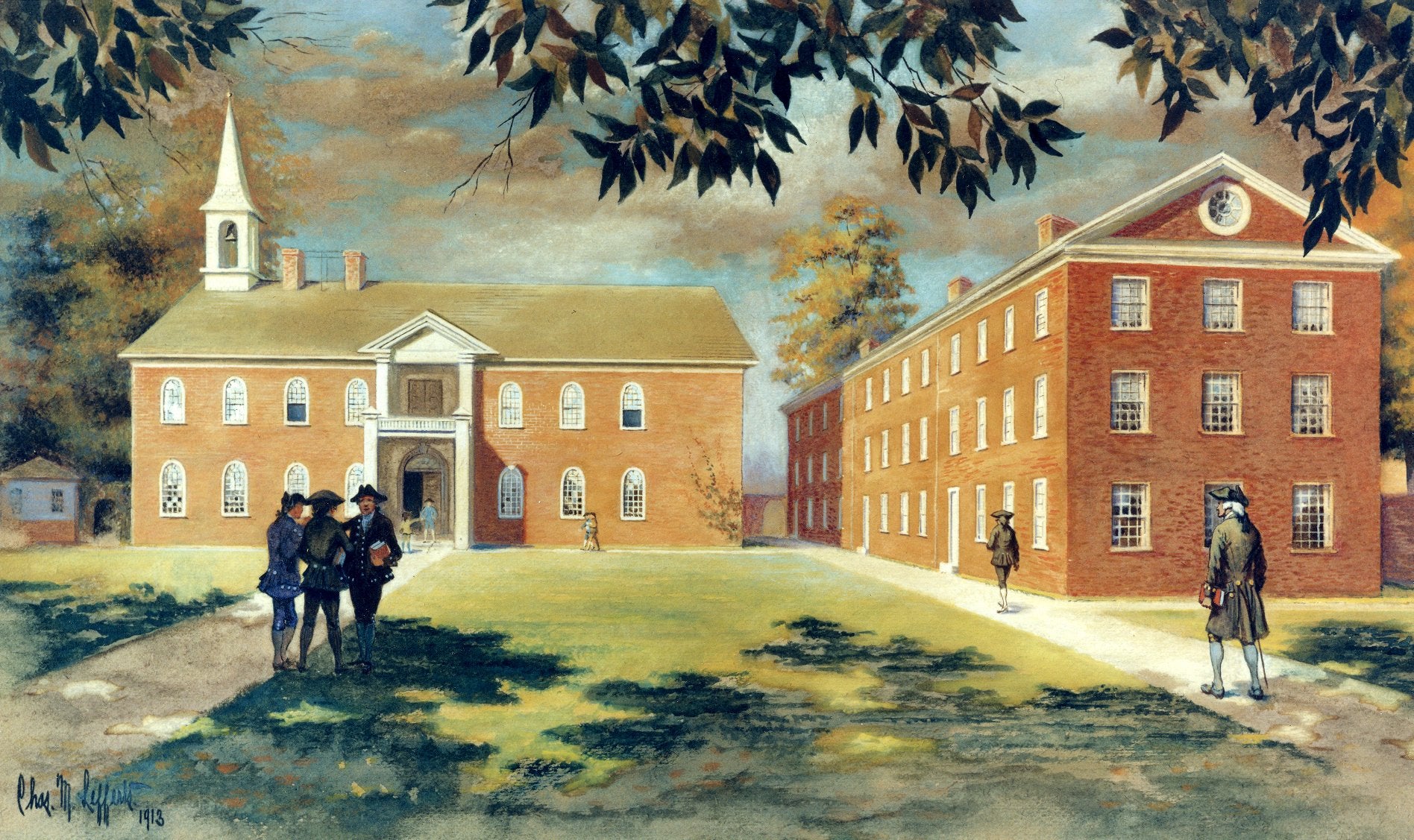John Beveridge was a native of Scotland who originally taught at a school in Edinburgh. Before being appointed professor of Greek and Latin in the College of Philadelphia in 1758, he was professor of languages at a private school at Hartford, Connecticut.
Beveridge appears to have possessed an accurate and profound acquaintance with the ancient languages, but outside of this knowledge his teaching abilities were limited. He had a very hard time obtaining the respect, cooperation and good conduct of his students. His wig and heavy Scottish accent became the target of student ridicule, causing him much frustration. Upon one occasion, an older boy pulled off Beveridge’s wig on a dare. Another student conspiracy resulted in the heavy window shutters closing when Beveridge entered the classroom, as he was pelted by books and rulers hurled by the scholars in the darkened room.
At the request of the Trustees, Beveridge prepared a Latin grammar for the use of his students. This grammar contained so many typographical errors that Francis Hopkinson wrote a humorous key to it, titled “Errata or the Art of Printing Incorrectly,” which offended both Rev. Alison and Beveridge, whose carelessness was responsible for the mistakes. Hopkinson also published “The Grammarians: or Scoto & the Doctor, a new Ballad,” in which he ridiculed Beveridge, and to which the latter penned an answer in Latin.
Beveridge’s most significant accomplishment is a volume of Latin poems, published in 1765 and the first of its kind printed in Philadelphia. He died a few years later, in 1767.

